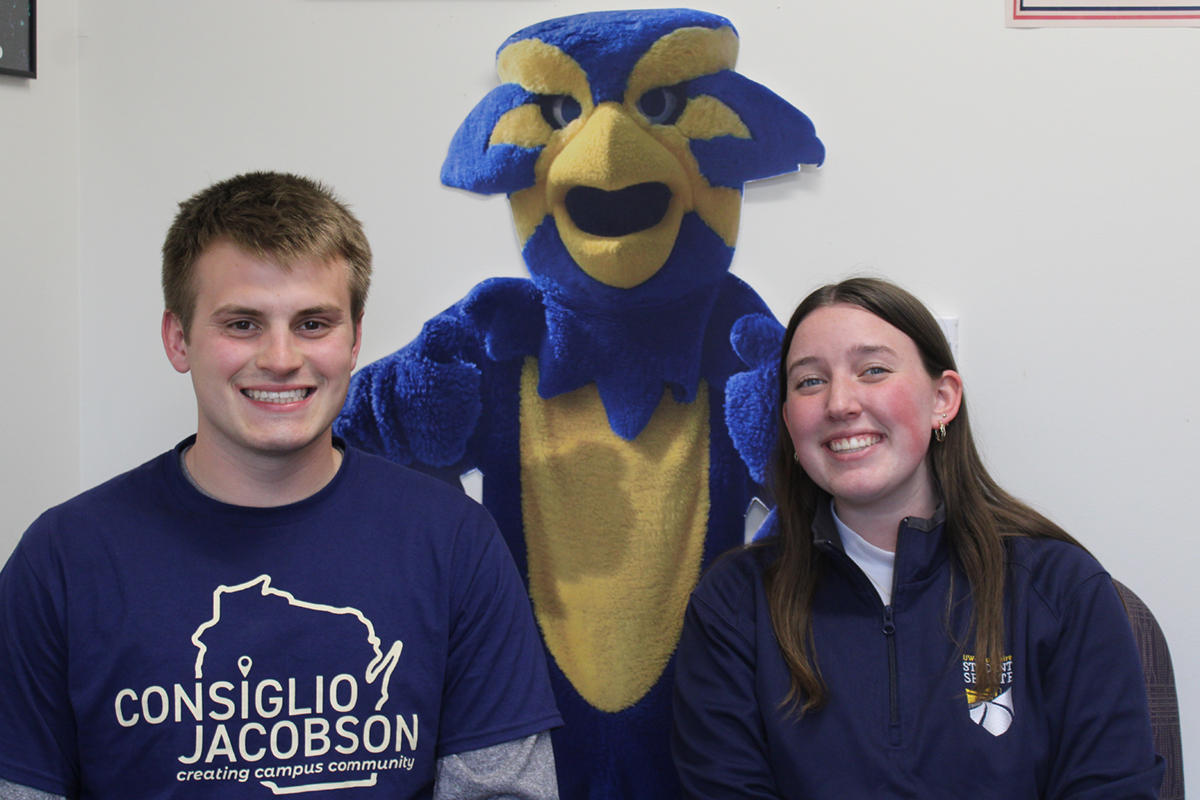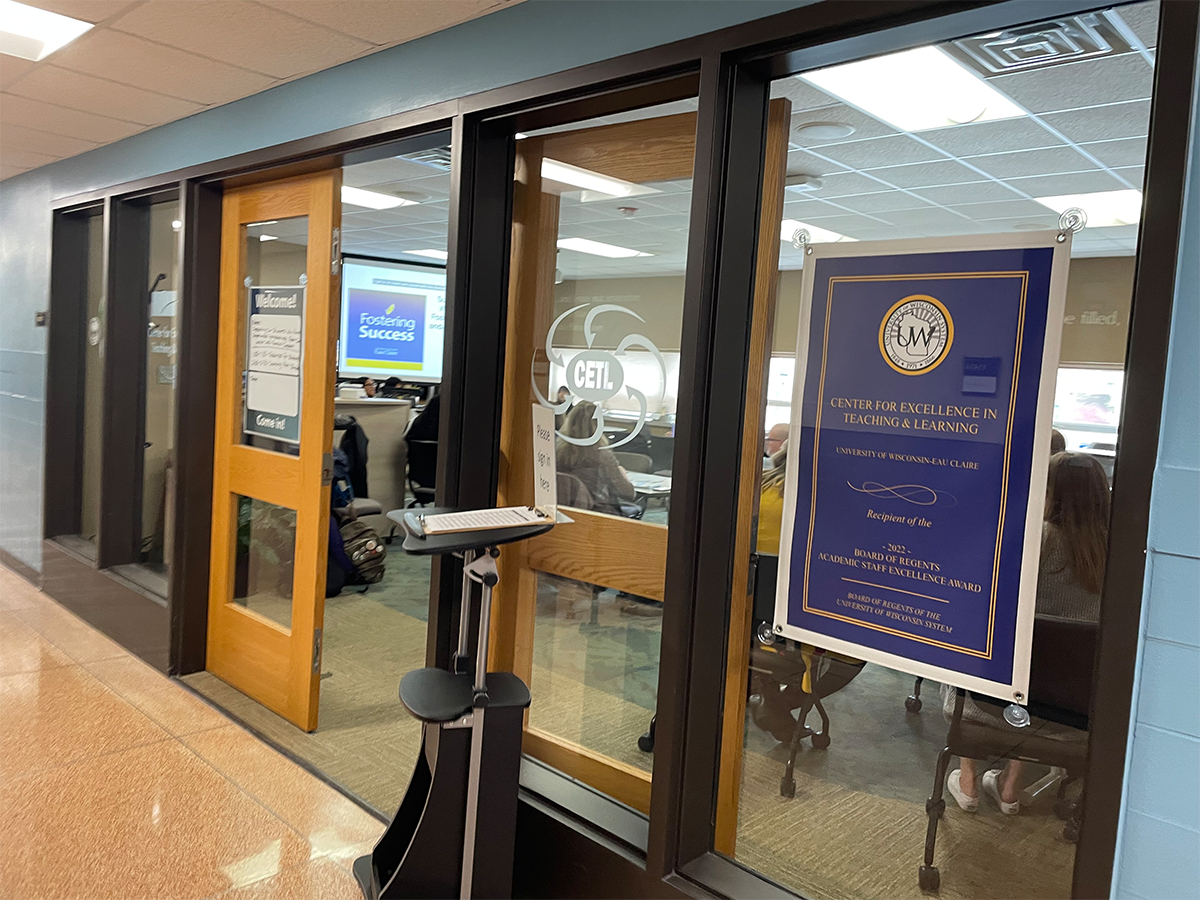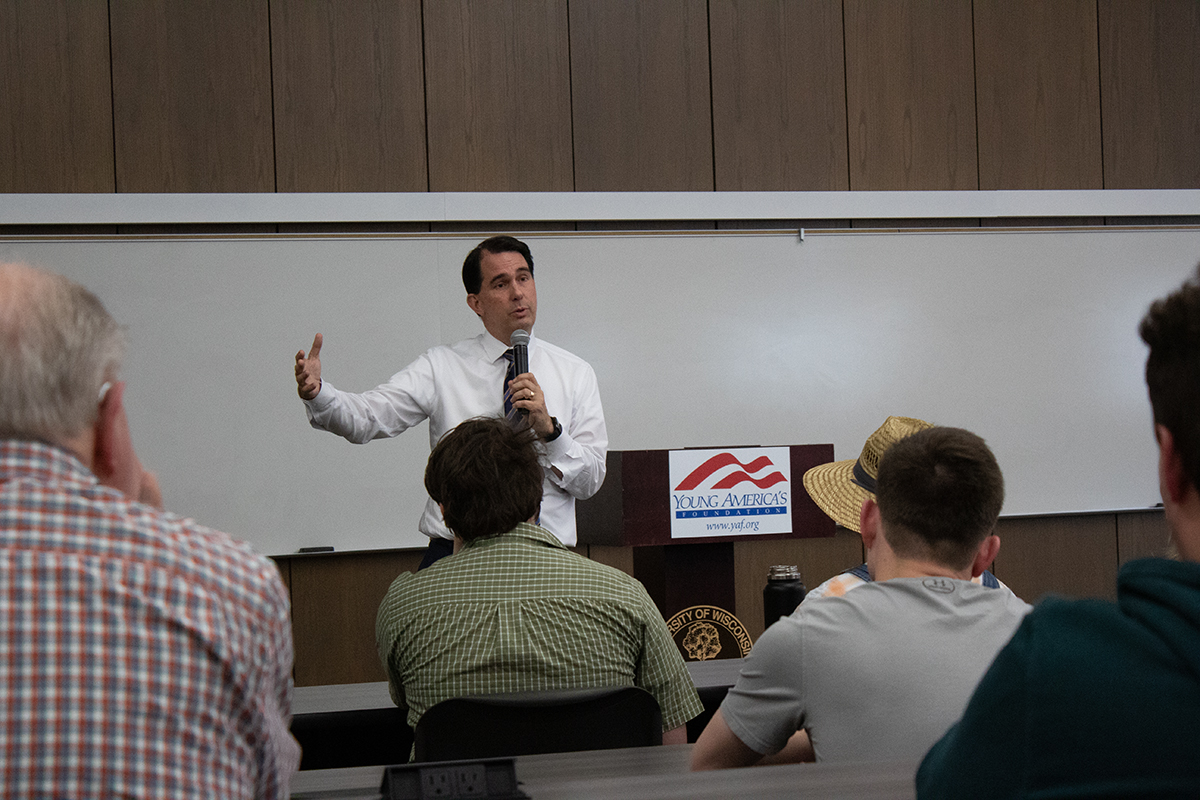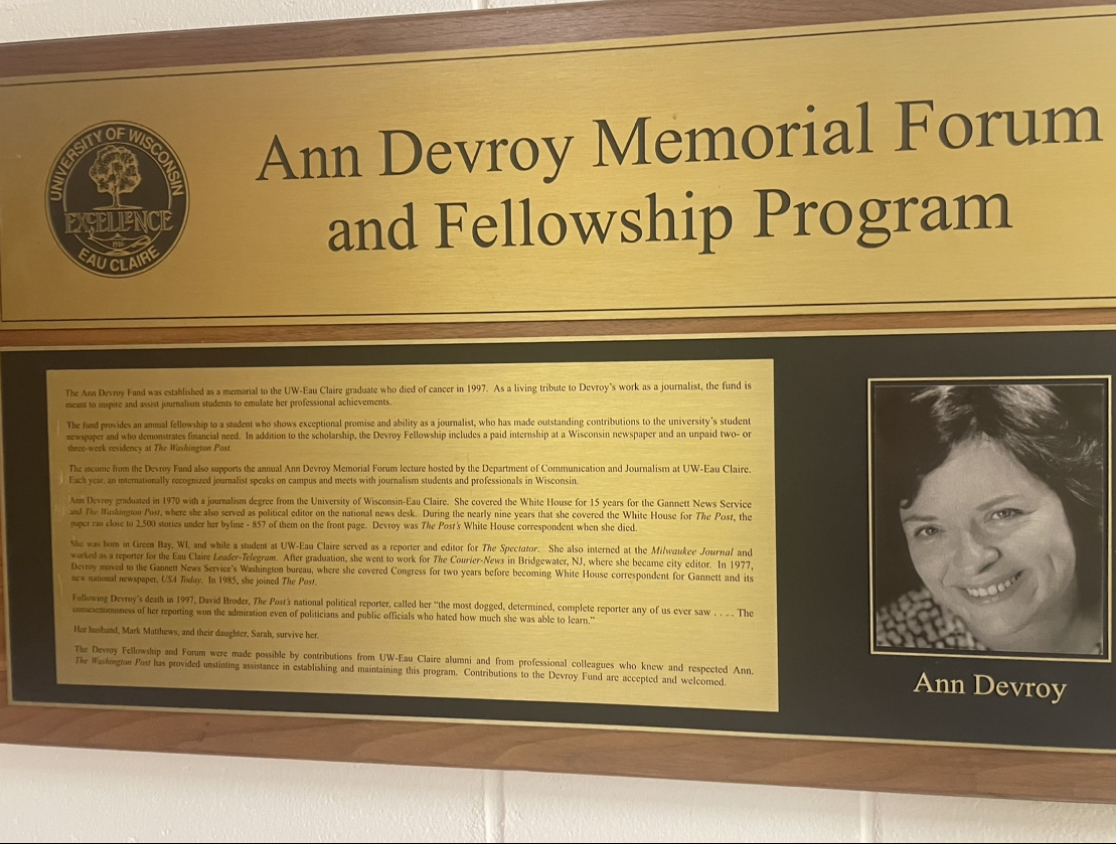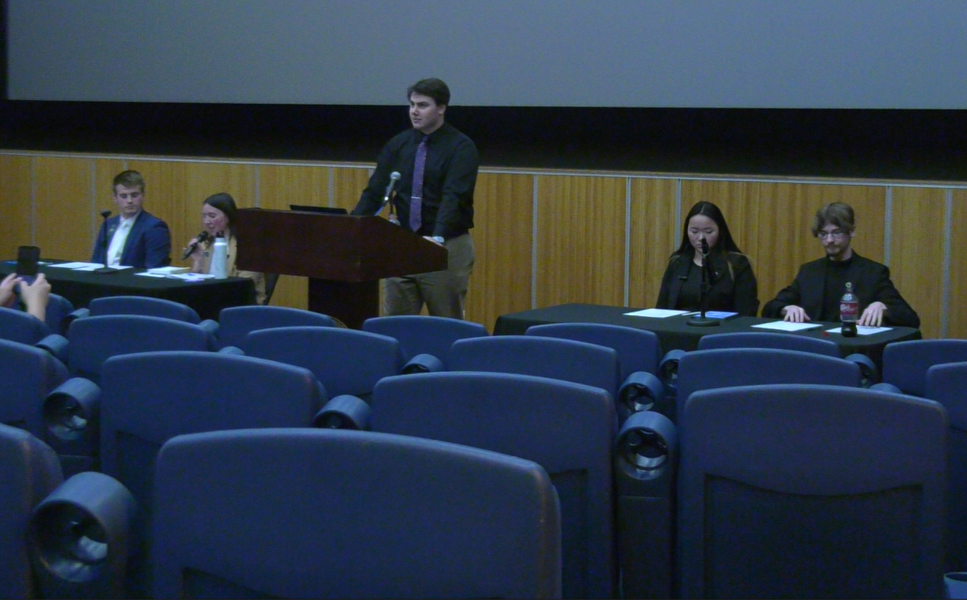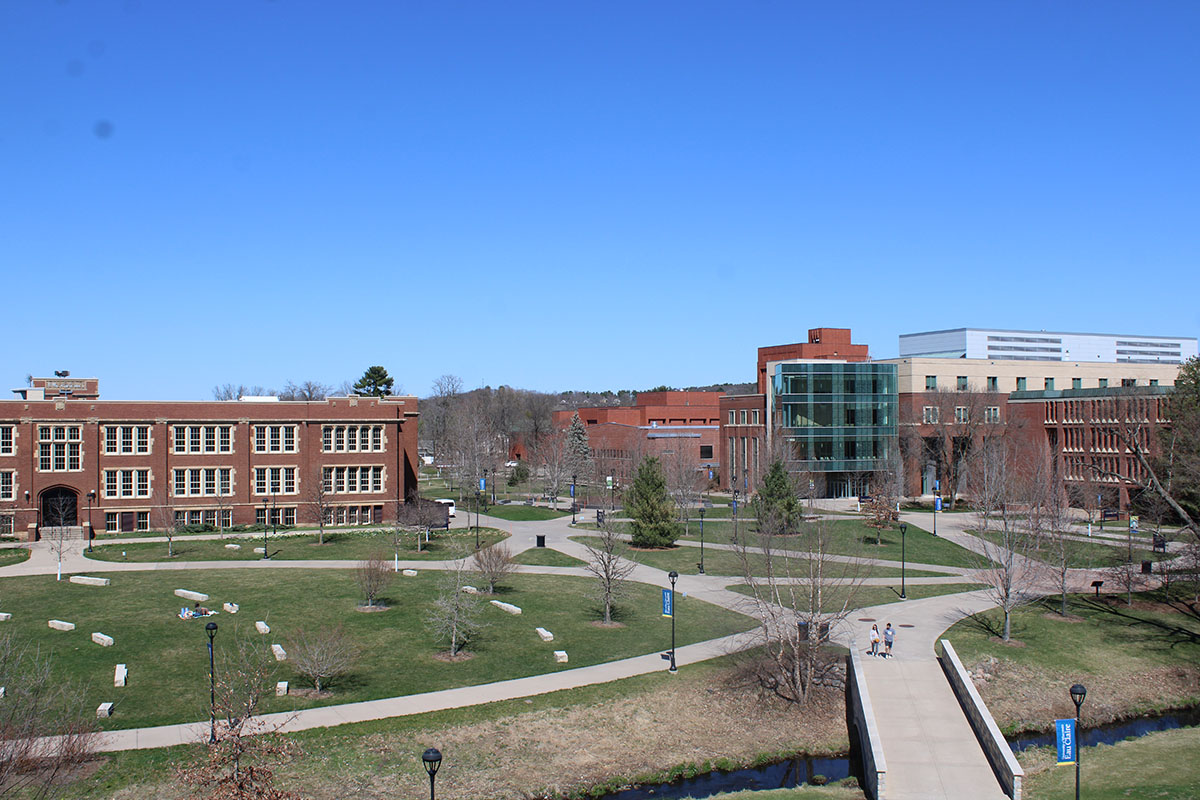Since 2010, the Higher Education Opportunity Act has required all universities that receive Title IV funding, including UW-Eau Claire, to inform students about copyright law, outline the penalties for copyright violations by students and faculty and provide a list of legal ways to obtain music, movies and other media commonly shared illegally.
On Sept. 21, Matt Sias, who was then the director of Student Senate’s Informational Technology Commission, and Student Body President Phil Rynish signed the HEOA Copyright Protection Requirement Compliance Statement, which fulfills this requirement for Eau Claire.
Sias said only minor changes were made in the wording of the document from last year, mainly to emphasize an educational outreach for alternative ways of obtaining media.
“I think we could do more in terms of outreach and communication, which is why I pushed for that this year,” Sias said.
The HEOA Statement defines the penalties for copyright violation as a 14-day ban from the network for a first violation, a 28-day ban for a second violation and a ban for the remainder of the semester for a third violation.
Kevin Lavoy, the technical support specialist for Housing and Residence Life, said the ban only applies to the device the violation occurred on and does not restrict students from using the university’s computer labs.
Sias, who has since left Senate to take a position at Learning and Technology Services, said Eau Claire has a high number of violations compared
to other universities.
“We’re pretty notorious, not only in the UW System, but in the nation,” Sias said.
Sias attributes the high numbers to the fact that Eau Claire does not restrict computer access or block file sharing programs and websites, as many universities do.
“Once you start blocking (file sharing sites), where do you stop?” Sias said. “Can you block certain websites because you don’t like what people do on them?”
John Pollitz, the director of the McIntyre Library and the university’s copyright officer, said he believes the trade-off is fair.
“We want to give students as much freedom as possible and not make all people suffer for some people who are doing something illegal,” Pollitz said. “It happens a lot on campus but it’s not everybody.”
In the 2010-2011 school year, there were 140 instances of students having their computers and devices banned from the university’s network because of complaints of illegal file sharing and other copyright violations. This number has remained relatively unchanged in the last three years, with 129 violations in both 2008-2009 and 2009-2010.
While the initial violation numbers are high, Sias said the repeat offender rate is low.
“Even if you do get caught once, it’s a learning experience because you’re not really in any trouble from the university, you just have to sit offline … for two weeks,” Sias said.
Lavoy said that the university is notified either from the Motion Picture Association of America or the System if a violation has occurred on Eau Claire’s network. The university can then match the IP address of the violator with the computer of the student who was illegally sharing music, then the student is banned from the network and notified.
Pollitz said it’s important for students to remember that they are being caught when sharing music over file share and peer-to-peer, even if the music being uploaded was legally obtained.
“The record industry is very serious about this and they have people who will catch you,” Pollitz said. “There’s so many other alternatives to fileshare and peer-to-peer or torrent. So just be safe and legal.”

